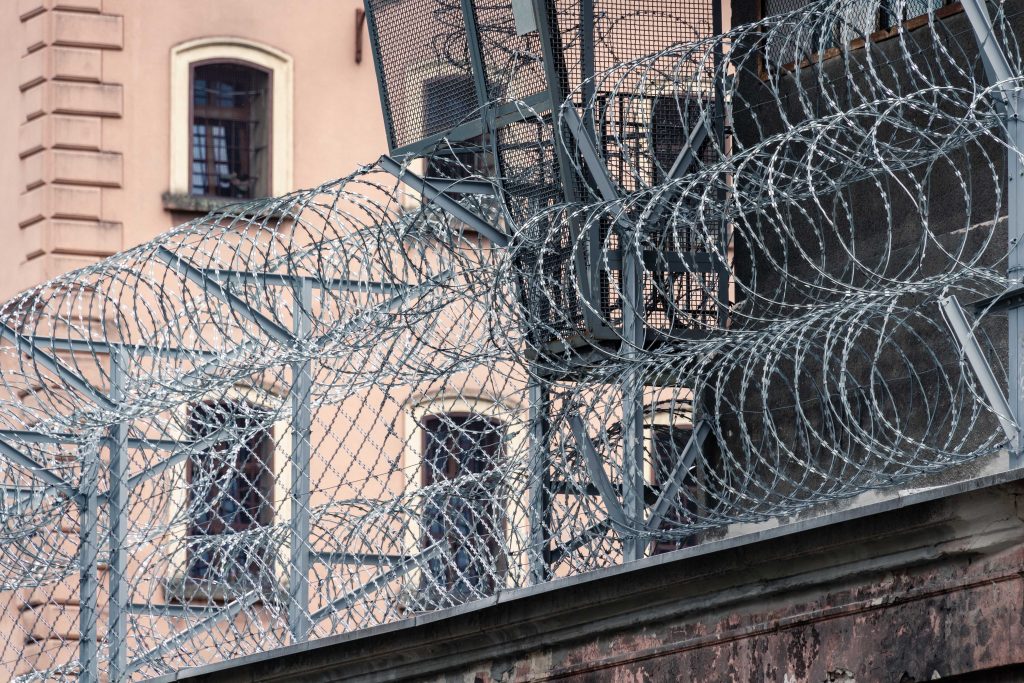
This new coronavirus disease does not discriminate. So we need to act fast to protect the health and well-being of those behind the walls and release all incarcerated people who are not a threat to the community.
Editor’s note: Shandre Delaney is a prison abolitionist and Community Based News Room contributor. Her son, Carrington Keys, was released from prison on May 15, 2018, after serving 20 years. He spent 10 of those years in solitary confinement. Since then, Delaney has become a vocal advocate for her son and all prisoners.
We have a medical crisis in our prisons in the United States. In January, I wrote an article explaining this medical crisis. Health care inside America’s prisons is substandard at best and in some cases nonexistent.
Based on capitalism, putting profits over care has led to lower standards in medical staff, equipment and medications. In many cases, prisoners do not receive proper care until they are treated at an outside hospital. Even then, this may only occur in an emergency situation or when someone is on their deathbed.
Other factors, such as the toxic and unsanitary environment inside our prisons is also a cause for concern. Consequently, being incarcerated with preexisting conditions can be a death sentence.
Based on capitalism, putting profits over care has led to lower standards in medical staff, equipment and medications.
At the time I wrote the previous article, I was unaware of the new coronavirus disease, called COVID-19. Now, a global pandemic has made its way to the U.S. The rates of infection are rising quickly, and there is no doubt that prisoners will be impacted significantly.
The medical crisis is now a matter of urgency. The incarcerated are more susceptible to chronic conditions and infectious disease at a higher rate than their counterparts on the outside. This virus is a threat to people with preexisting conditions, so it is extremely dangerous to the health and well-being of those behind the walls.
Prisoners Are Not Safe from COVID-19
This virus makes no distinction where you are or who you are. Both healthy people and those with chronic conditions have become victims of this pandemic. We are being warned daily that more lives will be lost before the peak makes a descent. Now the numbers have begun to double even though steps have been taken to slow it down. If the rate of infection is growing on the outside, it will increase on the inside. Since asymptomatic carriers can unknowingly give it to others, there is no doubt that prisoners can and will be exposed to the virus by guards bringing it in from the outside.
While those of us on the outside are under stay-at-home orders, many prisons are on lockdown. There are many problems with keeping prisoners at a safe distance from each other. We are able to adhere to social distance out here, but it is next to impossible on the inside when there are thousands of prisoners to be moved about for showers, chow and yard. Double celling creates another issue. The size of cells do not allow for the six-foot social distancing requirement.
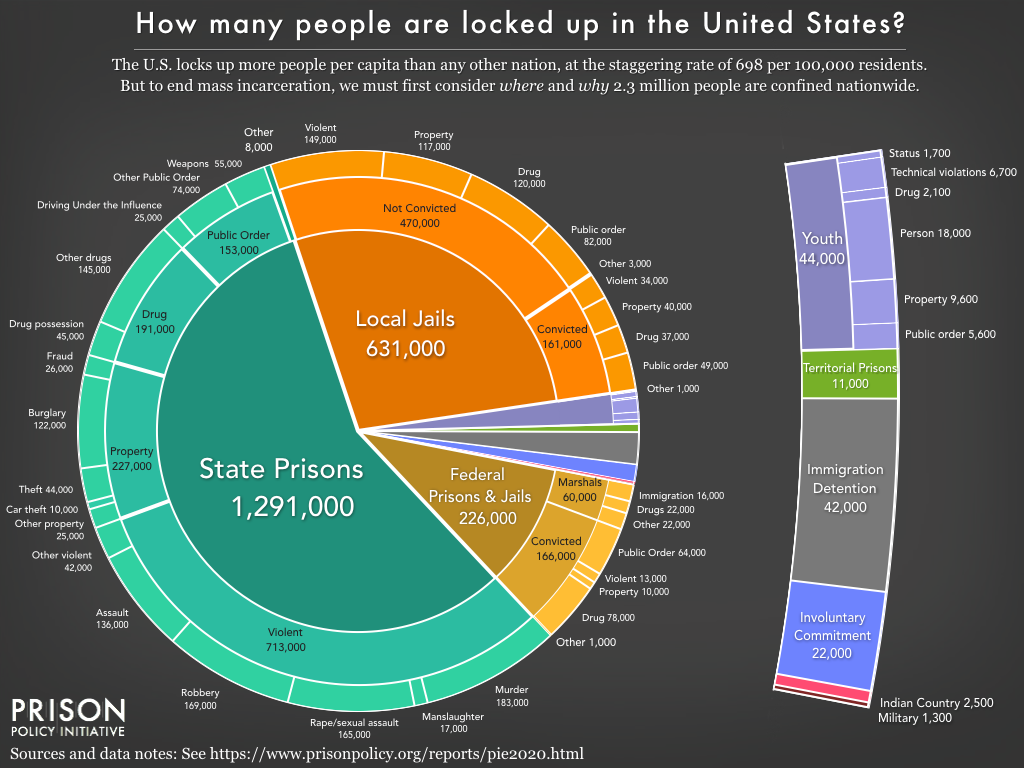
Many prisoners are housed in dormitory-type spaces with beds stacked two or three high and not far apart. Conditions are highly unsanitary to begin with, making it, as a prisoner described to me, “a cesspool for the virus.” We can wash our hands constantly and maintain other safe measures of sanitization, but that isn’t always an option inside a prison. Some prisoners aren’t even receiving information on safety practices.
This virus makes no distinction where you are or who you are.
In Pennsylvania, at the first announcement of the pandemic, prisoners reported that they were being given masks, but they still had to touch phones that hadn’t been sanitized. They filed grievances asking for wipes or a cleaning solution to be near the phones so they could be wiped down before each use. Some prisons have placed cleansing wipes by phones or clean the phones in between use, while others have not. Prisoners were supposed to be given antibacterial soap, which not everyone had been given. They want to sanitize their cells, and that has been an issue.
I recently spoke with Michael Rivera, a prisoner at State Correctional Institute (SCI) Benner in Bellefonte, Pennsylvania. “At the onset, the prison’s response was pretty lackadaisical, but now it is much better,” Rivera said. “We are on total lockdown, and only groups of four cells at a time are permitted out for phone and shower.”
While some safety measures in Pennsylvania prisons have been taken, it isn’t the case for a lot of the other states. any troubling stories are circulating about the bare minimum safety measures that aren’t even being taken. Oversight is a huge issue within the county jail systems, so we are receiving reports about guards not wearing masks or gloves and prisoners not being provided antibacterial soap.
Right now, there is no uniformity in how safety is being addressed within state, federal or local jails around the country. The shortage of tests and respirators is going to really hit hard. If the hospitals are getting to the point where they have to choose who gets to live, what does that look like for prisoners?
Aaron Campbell, a prisoner at Federal Correctional Institution (FCI), Elkton in Ohio, used a cell phone and Facebook Live to expose the treatment of COVID-19 infected prisoners he was housed with (warning: use of profanity and footage of sick prisoners). He knew the prisoners who died at FCI Elkton, one of whom he said was about to be released but the prison refused to release him early.
Campbell later was placed in solitary, most likely for having a cell phone, but definitely in retaliation for his video. The prison denied all the claims in the video, though there are confirmed cases of both staff and prisoners infected. Miseka Diggs, a prisoner in New Jersey, was thrown into solitary when she showed symptoms. This has been the case with many other prisons around the country. They are not being tested. Therefore, those with the virus are not being counted.
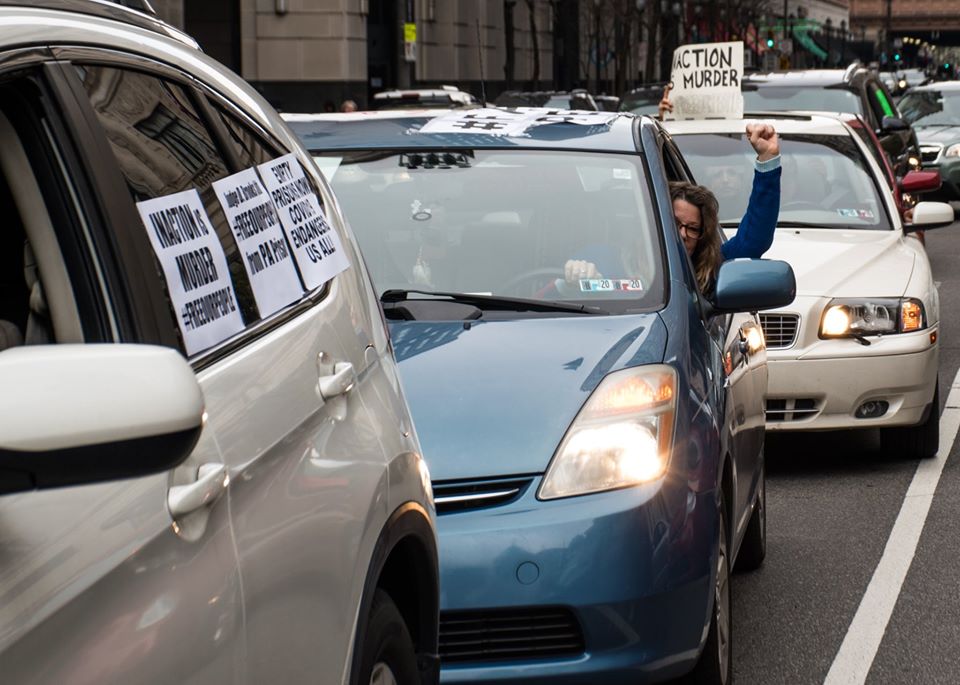
Currently, the state prisons in Pennsylvania are quarantined (locked down) as a result of inmates testing positive at SCI Phoenix, in Montgomery County, one of the first counties hit in Pennsylvania. To date, there are 190,818 reported cases of COVID-19 in the U.S. resulting in 4,129 deaths, and that number is starting to multiply.
The federal system nationally is locked down as well. There are confirmed cases of infected guards and prisoners in state prisons in Illinois, New York, Pennsylvania, Wisconsin and in the ICE and federal prison systems. These are only the cases I am aware of and do not include county jails, which in the opinion of most, will be even harder hit because they maintain a steady influx of people in and out their doors daily. A website, COVID-19 Behind Bars, is tracking the cases around the world.
Organizing Around COVID-19
Those of us who work with prisoners knew it was a matter of time before guards would begin bringing it into the jails and prisons. As a matter of routine, abolition is always at the forefront of our thinking and actions, but at present, the focus becomes a matter of safety and saving lives. Watching the virus spread and peak through America gives rise to fear. We know that within the prisoner population, it will begin to soar and cause many unnecessary deaths.
As an advocate for prisoner human rights and prison abolition, I have been participating in and tracking actions and responses to COVID-19 in Pennsylvania and across the country. There are common demands relating to the release of prisoners in state, federal, county jails and immigrant detention centers.
We all feel strongly that those who are vulnerable like the elderly, pregnant or anyone with chronic illnesses should be released immediately, as well as those with nonviolent charges who are up for parole. We are asking for no bail and to release on their own recognizance anyone who is not a threat to the community. We are asking for the police and ICE to limit their arrests and detentions, unless it is dangerous for the community.

The work of activists must continue, even though we are separated by social distancing . In this age of social media and technology, we have found new ways to communicate, protest and interact with the public. Zoom online meetings have become the new norm for being connected. Amistad Law Project, Abolitionist Law Center and ACLU sent a letter to Tom Wolf, the Pennsylvania governor, demanding the release of prisoners from our county jail and state prisons due to the impending health crisis.
The prime directive to people across the country and across the world now is social distancing. This is impossible within jails and prisons,” explained Bret Grote, the legal director of Abolitionist Law Center. “They eat together. They share bathrooms. They go into the yard space at the same time, and there is no privacy. Without a dramatic reduction in population, the illness will spread.”
At an online COVID-19 town hall meeting that nearly 300 people logged in to, abolitionists and prisoner advocates shared information on actions, updates on prison conditions and strategies for Pennsylvania. In Philadelphia, there was a drive-by protest with the same demands (video courtesy of Decarcerate PA).
The Pennsylvania ACLU filed an emergency petition in the Supreme Court for statewide releases of prisoners in county jails. Similar orders also have been filed in other states such as New Jersey and South Carolina.
Over 100 organizations and individuals from around the country signed on to A Public Statement on Coronavirus and Mass Incarceration to address concerns regarding the virus.
In Washington, D.C., ACLU and public defenders sued the Department of Corrections for disregard of basic public health measures to limit the spread and severity of a COVID-19 outbreak inside the D.C. Jail.
Support for the Release of Prisoners
Though the results aren’t huge, there are some victories and shows of support. Thirteen public health and legal experts from the University of Pittsburgh, Drexel, Temple and other universities in Pennsylvania sent a letter to the governor warning of the implications of COVID-19 for prisoners and how he could change that. Gov. Wolf also can use his powers of reprieve to release prisoners, and many are urging him to take advantage of that.
Many in the political class are beginning to understand the gravity of this situation, like Sen. Farnese from District 1 in Pennsylvania. He wrote a statement calling on Gov. Wolf to use his emergency powers to release nonviolent offenders, technical parole violators, the elderly, individuals with underlying health conditions, and prisoners that have been misconduct free.
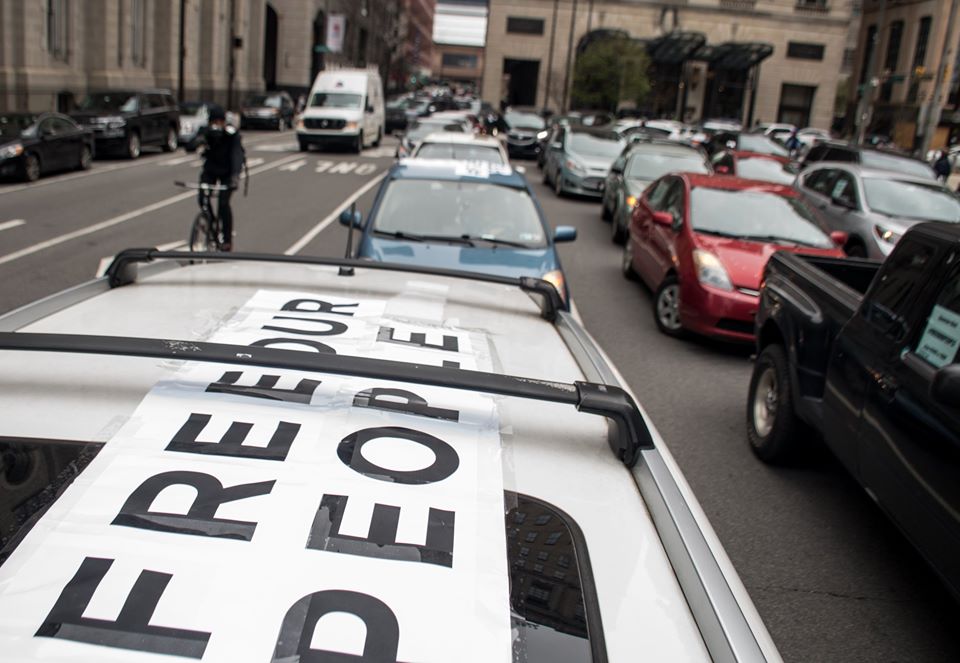
Families Against Mandatory Minimums (FAMM) also wrote a similar letter and are urging federal prisoners to apply for compassionate release.
Philadelphia District Attorney Larry Krasner also made a plea for the release of prisonersfor the sake of public health. Surprisingly, U.S. Attorney Gen. William Barr asked the Bureau of Prisons to begin begin releasing elderly prisoners, of which there are 10,000 and one-third of them have preexisting conditions. This amounts to about 2,000 federal prisoners.
This is a time for everyone to be working together for humanity, including those who are often considered to be the least of us.
Prisoners are beginning to be released in other countries, with Indonesia, Iran and Ethiopia taking the lead. After much persuasion, there have been releases in the United States. New Jersey will begin to release low-level offenders from their county jails.
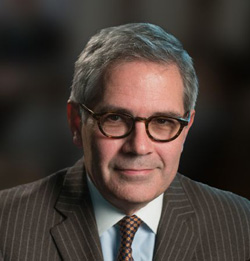
In Pittsburgh, Allegheny County Jail (ACJ) released over 700 people and promised to release 100 per week until the jail is at 50 percent capacity. Currently, we are receiving reports from ACJ that several guards are reported to have the coronavirus, but due to staff shortages, they still are required to work. California will release 3,500 inmates over the course of the next 60 days.
Most recently, the Pennsylvania federal court ordered the release of 10 ICE detainees citing their inability to protect them from the coronavirus. As we push for their release, those on the inside are raising their concerns in a number of ways. At a private-ran ICE detention center in Louisiana, women used a video call to protest because there were infected people among them.
At an immigrant detention center in York County Pennsylvania, 180 people went on a hunger strike for the same reason.
Internationally, COVID-19 sparked riots in prisons in Columbia, Iran and Thailand.
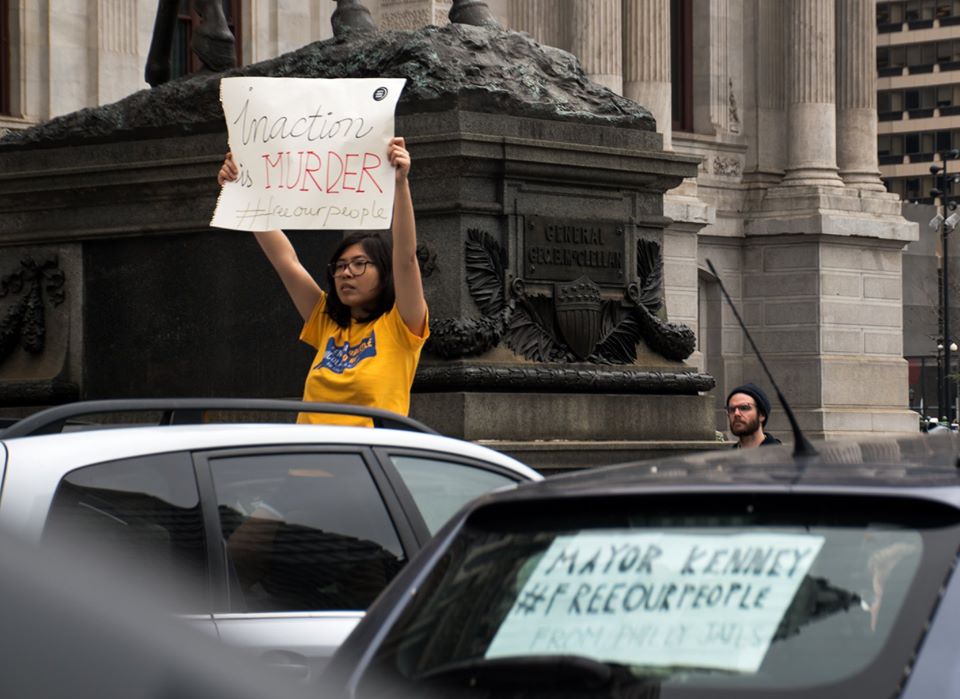
These are trying times for us all. Even though we are secure in our homes, we must be vigilant and protective of one another. This pandemic has no boundaries, and walls will not stop it.
In the name of public health, we must save not only the lives that enjoy freedom but also the lives behind the walls. We are headed toward a catastrophic and unnecessary loss of lives inside our prisons if this is not handled immediately.
Our leaders have a duty to ensure the safety of its citizens. The community also has a duty to amplify their plight and be the voice of the incarcerated. This is a time for everyone to be working together for humanity, including those who are often considered to be the least of us.
Please read and share the information below and give support when and where you can.
For updates, state-by-state organizing and tracking COVID-19 in prisons:
COVID-19 List of prisoner actions
When There is a Pandemic and Your Loved One is in Prison (Evelyne Kane and Suzy Subways)
Donate:
Emergency Prisoner Family Relief Fund
Help send soap to people in prison
Find an action to support (Compiled by Prison Health News):
- Alabama:
- Alabama Department of Corrections COVID19 Phone Zap
- Press Release from the Free Alabama Movement (April 5, 2020), We Are Being Left to Die
- Arizona:
- California:
- Connecticut:
- Florida:
- Illinois:
- Kentucky:
- Louisiana:
- Maine:
- Massachusetts:
- Michigan:
- Mississippi:
- Missouri:
- North Carolina:
- Charlotte (Mecklenburg County): Prevent the Spread of COVID-19 by Decarcerating Mecklenburg
- Maryland:
- New York:
- Public Health Letter to Gov. Cuomo: Grant Clemencies to Older New Yorkers in Prison Who Are Vulnerable to Coronavirus
- Petition to Gov. Cuomo to use clemency, end forced labor, and stop rollbacks on jail reform
- Demand free phone calls to incarcerated people during COVID-19
- The Parole Preparation Project is asking for donations for community members in prison for soap, canned goods and phone calls
- Oklahoma:
- Pennsylvania:
- Washington state:
- Wisconsin:
- United States/National:
- Federal Bureau of Prisons: Letter from the ACLU
- List of groups in 22 states that are advocating for incarcerated youth
- National Directory of Community Bail Funds that are freeing people by paying bail/bond and fighting to abolish the money bail system and pretrial detention.
- Petition: Demand Congress protect incarcerated and detained people from COVID-19
Community Based News Room publishes the stories of people impacted by injustice and aspiring for change. Do you have a story to tell? Please contact us at CBNR. To support our Community Based News Room, please donate here.




